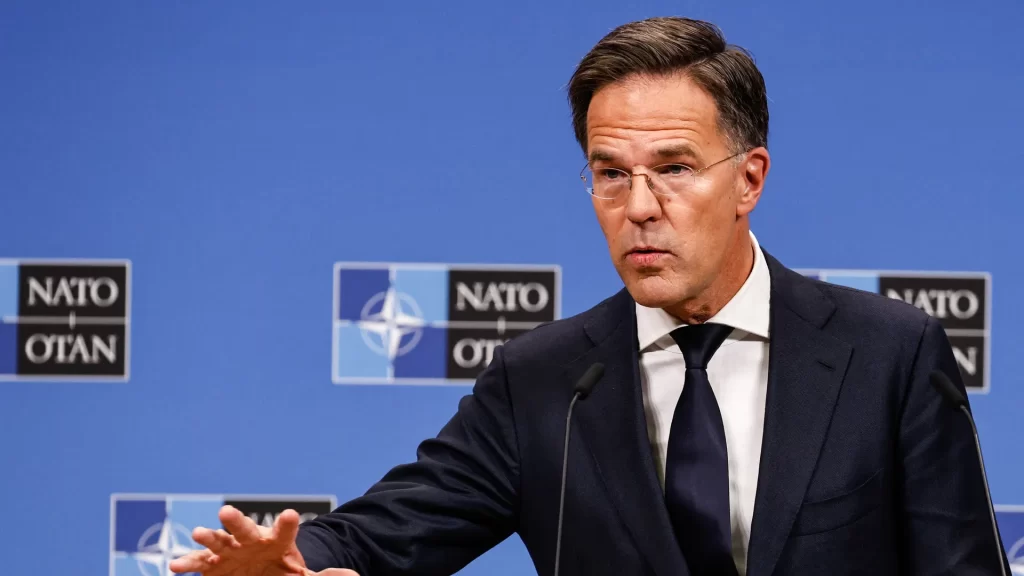North Korean Troops Deployed to Russia’s Kursk Region, NATO Confirms
3 min read

In a significant development, NATO has confirmed that North Korean troops have been deployed to the Kursk region of Russia, where Ukrainian forces maintain a foothold. NATO Secretary General Mark Rutte made this announcement following a meeting with South Korean security officials, marking the first official acknowledgment of North Korean forces operating in Russia.
Rutte described the deployment as a “significant escalation” and a “dangerous expansion” of Russia’s ongoing conflict in Ukraine. This statement follows reports that North Korea was preparing to send thousands of troops to support its ally, with Russian President Vladimir Putin recently refusing to deny these claims. Putin stated, “This is our sovereign decision,” emphasizing Russia’s autonomy regarding military decisions involving North Korean forces.
NATO’s assessment indicates that North Korea has already supplied Russia with ballistic missiles and millions of rounds of ammunition. In return, Russia has committed to providing military technology and other forms of support to help North Korea bypass international sanctions, a partnership Rutte warned could undermine global peace and security.
The news of North Korean troops in the Kursk region raises alarm among Western leaders. European Commission President Ursula von der Leyen stated on X, “North Korean soldiers are deployed to support Russia’s war of aggression. It’s a grave escalation in this war and a threat to global peace.” She confirmed that the European Union would respond in conjunction with its allies.
While the exact number of North Korean troops deployed remains unclear, South Korea’s intelligence agency previously reported that around 1,500 soldiers had arrived in Russia. Meanwhile, the U.S. Defense Department estimated that up to 10,000 North Korean troops were training in eastern Russia, with some moving closer to Ukraine. Pentagon spokeswoman Sabrina Singh expressed increasing concern that these soldiers could be used in combat operations against Ukrainian forces.
President Joe Biden echoed these concerns, describing North Korea’s assistance to Russia as “very dangerous.” This development comes amid ongoing conflict between Russian and Ukrainian forces, which has seen Ukraine claim approximately 250 square kilometers of territory, despite facing renewed Russian troop deployments.
The potential arrival of North Korean troops in Kursk adds pressure on Ukrainian forces, with reports suggesting that around 5,000 elite North Korean soldiers could join Russian units in the border area shortly. Ukrainian President Volodymyr Zelensky indicated that these troops could be deployed to the battlefield within days.
Western leaders have warned for weeks that the involvement of North Korean forces could intensify the conflict. Belarusian President Alexander Lukashenko, a close ally of Putin, also suggested that such a move would escalate hostilities.
The relationship between North Korea and Russia has strengthened significantly since Russia’s isolation following its invasion of Ukraine in February 2022. Earlier this year, North Korean leader Kim Jong Un and President Putin agreed to mutual support in the event of aggression against either nation.
Despite the military collaboration, some experts have raised doubts about the effectiveness of North Korean troops in aiding Russia. Challenges such as language barriers and the lack of recent combat experience for North Korean forces could limit their contributions to the war effort. Footage obtained by Ukrainian intelligence reportedly shows Russian troops expressing skepticism about how North Korean soldiers would be commanded and supplied.
As the conflict approaches its third year, NATO estimates that over 600,000 Russian troops have been killed or wounded, while Ukrainian estimates suggest similar figures for Russian casualties. Official updates on casualties are rare, but a BBC Russian analysis confirmed over 70,000 Russian soldiers killed in combat, while Zelensky noted that around 31,000 Ukrainian soldiers had died since the onset of the full-scale invasion, though other estimates indicate that the actual number is significantly higher.
The ongoing dynamics of the war continue to evolve, with international implications and rising tensions as North Korean troops enter the fray in support of Russia.